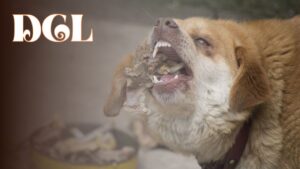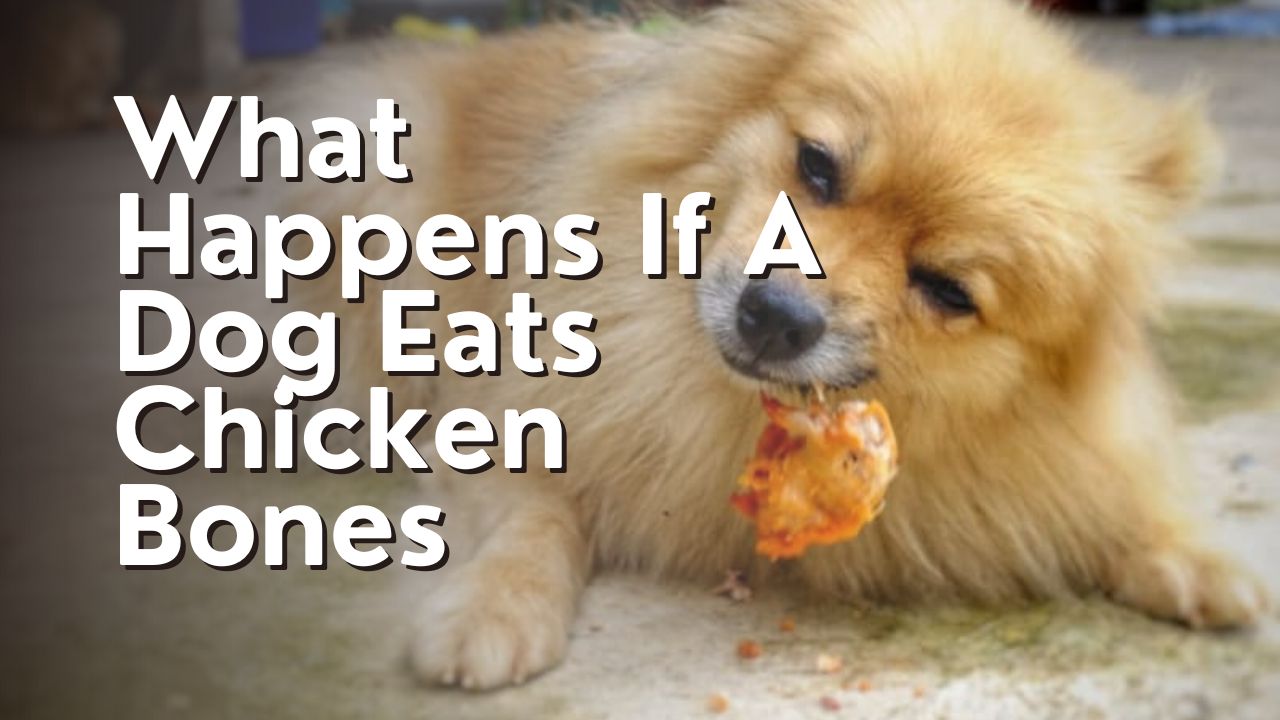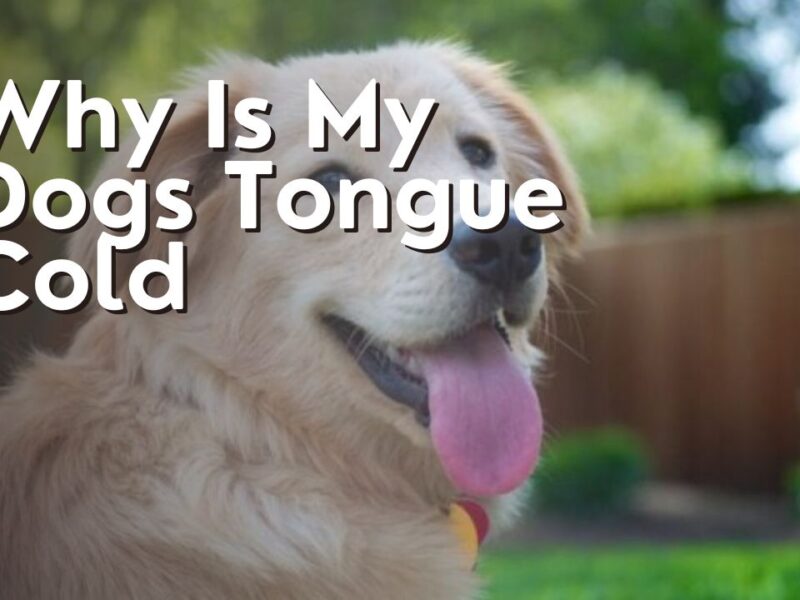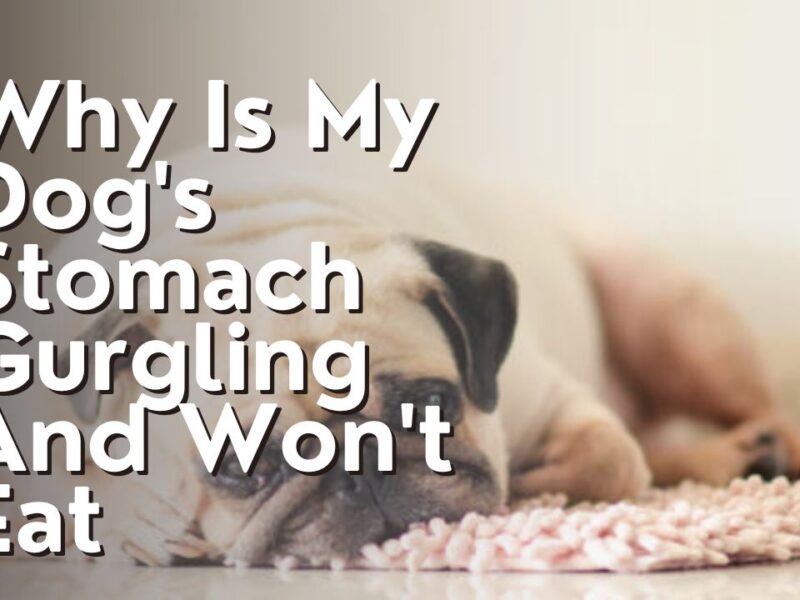As a dog owner, it’s important to know the potential risks associated with our furry friends ingesting chicken bones. In this article, we’ll explore what happens when a dog eats chicken bones, the signs and symptoms to watch for, and what steps you can take if this unfortunate situation occurs.
By understanding the potential dangers and being prepared, we can ensure the well-being of our beloved pets. Let’s dive in and learn more about this common concern.
The Risks of Dogs Ingesting Chicken Bones
If your dog eats chicken bones, you’re putting them at risk for serious injury or illness. It’s important to understand the potential dangers associated with dogs ingesting chicken bones.
First and foremost, chicken bones can splinter easily, especially when chewed. These sharp fragments can cause punctures or tears in the dog’s mouth, throat, or digestive tract. This can lead to severe pain, bleeding, and even infection.
Additionally, if a bone gets stuck in the dog’s esophagus or intestines, it can create a blockage that requires immediate medical attention. This blockage can prevent the dog from being able to eat or drink properly, leading to dehydration and malnutrition. In some cases, surgery may be necessary to remove the bone and relieve the blockage.
Moreover, chicken bones can also pose a choking hazard for dogs, especially smaller breeds or those who like to gulp their food. Therefore, it is crucial to keep chicken bones out of reach and dispose of them properly.
Always prioritize your dog’s safety and well-being by providing them with appropriate toys and treats that are specifically designed for their consumption.

Signs and Symptoms to Watch for
Keep an eye out for any signs or symptoms to watch for after your pup has consumed chicken bones. It’s important to be aware of any potential issues that may arise.
One of the first things you may notice is vomiting. If your dog starts vomiting after eating chicken bones, it could be a sign that the bones have caused irritation or an obstruction in their digestive system.
Another symptom to watch for is diarrhea. Chicken bones can be sharp and may cause damage to the intestines, leading to loose stools or even bloody diarrhea.
Additionally, if your dog is experiencing abdominal pain, they may show signs of discomfort such as restlessness, pacing, or whining. Keep an eye out for any changes in their behavior, as this could be a sign that something is not right.
It’s also important to monitor their appetite. If your dog suddenly loses interest in food or refuses to eat, it could indicate that they are experiencing discomfort or pain.
If you notice any of these symptoms, it’s crucial to seek immediate veterinary care. Remember, prevention is always better than cure, so it’s best to keep chicken bones out of your dog’s reach to avoid any potential risks.
What to Do if Your Dog Eats Chicken Bones
To address the situation when your pup ingests chicken bones, it’s important to take immediate action and seek veterinary assistance. Dogs can suffer from serious health issues if they eat chicken bones, as they can splinter and cause internal damage to their digestive system.
Here’s what you should do if your dog eats chicken bones:
- Stay calm: Panicking won’t help the situation. Take a deep breath and focus on finding a solution.
- Do not induce vomiting: Unlike some other foreign objects, it’s not recommended to induce vomiting when it comes to chicken bones. This can cause the bones to become lodged in the throat or esophagus.
- Contact your vet: Call your veterinarian right away and explain the situation. They will provide you with guidance on what steps to take next.
- Follow your vet’s advice: Your vet may ask you to monitor your dog for signs of discomfort or distress. They may also recommend bringing your dog in for an examination or x-rays to assess the situation further.
Remember, prompt veterinary care is crucial when your dog ingests chicken bones. By following these steps and seeking professional help, you can ensure the health and well-being of your furry friend.
Treatment Options for Dogs that Ingest Chicken Bones
Treatment options for dogs that ingest chicken bones include seeking immediate veterinary assistance and following the guidance of your veterinarian. It is crucial to act quickly in order to prevent any potential complications or injuries that may arise from the ingestion of chicken bones.
In some cases, the veterinarian may choose to induce vomiting in order to remove the bones from the dog’s stomach. This can be done using medications or by administering hydrogen peroxide under the guidance of a professional. However, it is important to note that inducing vomiting may not be suitable for all dogs, especially if they have certain medical conditions or if the bones have already passed into the intestines.
Another treatment option is to monitor the dog closely and provide supportive care. This may involve feeding the dog a bland diet to ease any gastrointestinal discomfort and watching for any signs of distress or obstruction. In some cases, the veterinarian may recommend additional diagnostic tests such as X-rays or ultrasounds to assess the location and potential damage caused by the chicken bones.
Overall, it is essential to consult with a veterinarian as soon as possible if your dog ingests chicken bones. They will be able to provide the best course of action based on the individual circumstances and ensure the well-being of your furry friend.
| Pros of seeking veterinary assistance | Cons of not seeking veterinary assistance |
|---|---|
| Early detection and treatment can prevent complications | Bones can cause intestinal blockages |
| Veterinarian can provide appropriate guidance and treatment | Bones can splinter and cause internal injuries |
| Professional monitoring can ensure the dog’s safety and well-being | Bones can perforate the digestive tract |
Preventing Dogs from Accessing Chicken Bones
Make sure you securely dispose of any leftover chicken bones to prevent your furry friend from getting access to them. Dogs are naturally curious and can easily be tempted by the smell and taste of chicken bones.
However, it is important to remember that chicken bones can be extremely dangerous for dogs to consume. They can splinter and cause serious injuries to their mouth, throat, and digestive system.
To prevent your dog from accessing chicken bones, it is essential to practice proper food storage and disposal. When you are finished with your meal, immediately place any leftover bones in a sealed container or bag and dispose of them in a secure trash bin. Avoid leaving bones on the counter or in an easily accessible garbage can, as dogs can be quite resourceful when it comes to finding food.
Additionally, it is crucial to educate your household members and guests about the dangers of leaving chicken bones within reach of your dog. Remind them to also securely dispose of any bones and to be mindful of where they place their plates and leftovers.
By taking these preventative measures, you can significantly reduce the risk of your dog getting access to chicken bones and experiencing potential health issues. Remember, it is always better to be safe than sorry when it comes to the well-being of your furry companion.
Safer Alternatives for Dogs to Chew On
Now that we know how important it is to prevent dogs from accessing chicken bones, let’s talk about some safer alternatives for our furry friends to chew on.
As a dog owner, I’ve learned that providing appropriate chew toys can help satisfy their natural urge to chew and keep them away from potential dangers.
Here are five safer alternatives that dogs can enjoy:
- Rubber chew toys: These toys are designed to withstand strong jaws and can provide hours of entertainment for our four-legged pals.
- Kong toys: These durable toys can be filled with treats or peanut butter, keeping dogs engaged and mentally stimulated.
- Rope toys: Dogs love to play tug-of-war, and rope toys are a great way to satisfy this instinct while also promoting dental health.
- Dental chews: These treats are not only delicious but also help clean your dog’s teeth and freshen their breath.
- Frozen fruits and vegetables: Some dogs enjoy chewing on frozen fruits and veggies like carrots or watermelon, which can provide a refreshing and healthy snack.
Remember, it’s essential to supervise your dog while they chew on any toy or treat to ensure they don’t accidentally swallow any small pieces. By providing these safer alternatives, we can keep our furry friends happy, healthy, and away from potentially harmful chicken bones.

Frequently Asked Questions
Can dogs digest chicken bones?
Dogs can digest chicken bones, but it’s not recommended. They can splinter and cause choking, blockages, or internal injuries. It’s safer to avoid giving dogs bones and opt for safer alternatives like chew toys.
How long does it take for a dog to pass chicken bones?
It usually takes about 24 to 48 hours for a dog to pass chicken bones. However, it’s important to monitor their behavior and contact a veterinarian if there are any signs of discomfort or digestive issues.
Will chicken bones always cause harm to dogs?
Chicken bones can cause harm to dogs as they can splinter and cause obstructions or puncture the digestive tract. It is important to keep chicken bones away from dogs to avoid potential health risks.
Can small dogs safely eat chicken bones?
Small dogs should not eat chicken bones as they can pose a choking hazard and cause injury to their digestive system. It is best to stick to safer alternatives for their health and safety.
What are the potential complications if a dog ingests chicken bones?
The potential complications if a dog ingests chicken bones include choking, intestinal blockage, and damage to the digestive tract. It can be dangerous and requires immediate veterinary attention to prevent further harm.
Conclusion
In conclusion, it’s crucial to be aware of the risks and take immediate action if your dog ingests chicken bones.
The sharp fragments can cause serious damage to their digestive system, leading to potential complications.
Watching for signs and symptoms, such as vomiting or discomfort, is important for early detection.
If your dog does eat chicken bones, contacting a veterinarian for guidance and potential treatment options is essential.
Remember, prevention is key, so always keep chicken bones and other harmful items out of your dog’s reach and provide safer alternatives for them to chew on.


